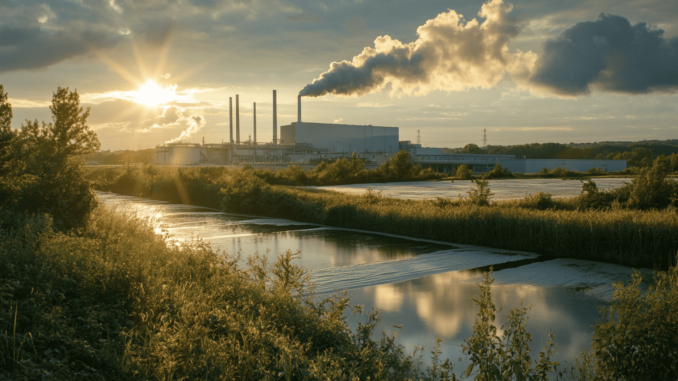
Greenidge Wins Reprieve, But Challenges Remain Greenidge Wins
The New York Supreme Court’s ruling allows Greenidge Generation to continue its operations in Dresden, New York. Operations involve power generation and Bitcoin mining. In addition, the court has allowed Greenidge to consider reapplying for the Clean Air Act Title V Air Permit denied by the New York State Department of Environmental Conservation, DEC, in June 2022.
The ruling by Judge Vincent Dinolfo was a turning point for Greenidge. The Court supported the earlier arbitrary action of the DEC in denying the permit, yet allowed the DEC to apply appropriate discretion under New York’s CLCPA. Such a ruling thereby provided a balancing act between the principle of enforcement of environmental policy and just administrative procedure.
Order to Reconsider Permit
Earlier this year, an appeal by Greenidge of the DEC’s denial of its air permit was denied; thereafter, Greenidge filed an Article 78 petition seeking judicial review. The petition argued that the DEC’s denial was legally defective and prejudicial in nature. The principal and repeated finding of Judge Dinolfo was thus: “DEC had the authority to deny Greenidge’s Renewal Application under CLCPA §7(2), but in utilizing that authority in its Final Denial, acted in a manner that was both affected by errors of law and arbitrary and capricious”.
As such, the denial of the permit was vacated and sent back to the DEC for reconsideration in light of the court’s findings. This move relieved Greenidge of the expected closure of its Finger Lakes plant on November 14.
Divided Reactions
The court’s move drew loud reactions from all quarters. Greenidge hailed the ruling as a “huge win,” expressing a feeling that it safeguarded the livelihoods of local workers while standing against “politically motivated governmental overreach”.
Environmental groups were considerably less pleased. Earthjustice, representing several groups as intervenors in the case, zeroed in on the environmental impacts. Sierra Club Atlantic Chapter Kate Bartholomew was even more scathing: “Not only was Greenidge trying to overturn the prior DEC decisions, it was also trying to decimate New York’s monumental climate law.”.
This case continues a long history of tension between economic interests, technological development, and environmental concern, now compelling DEC to reconsider its position in light of the court’s ruling.


